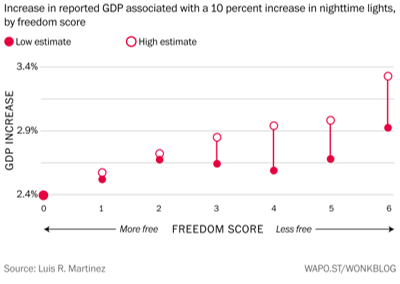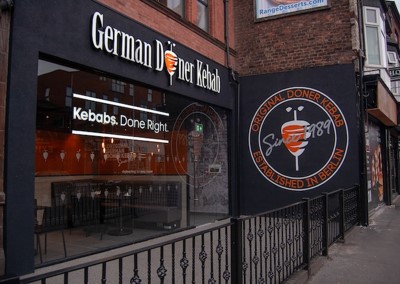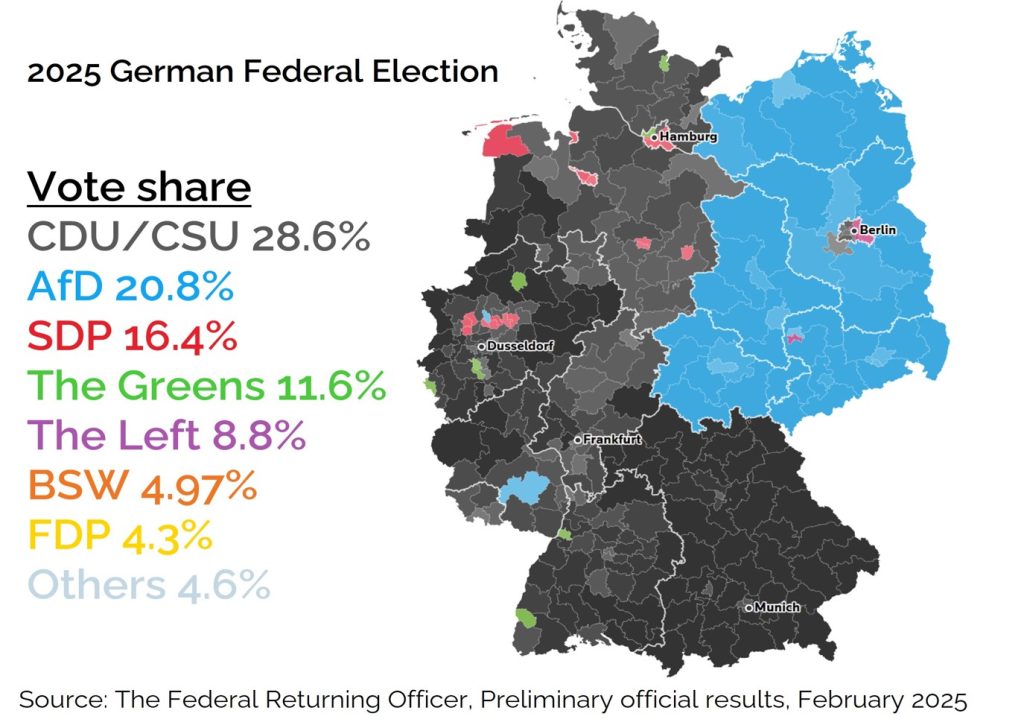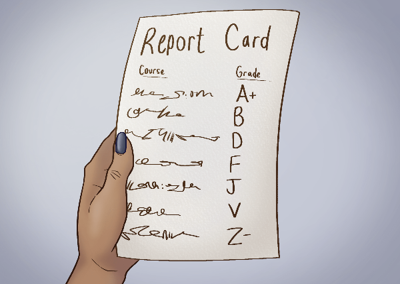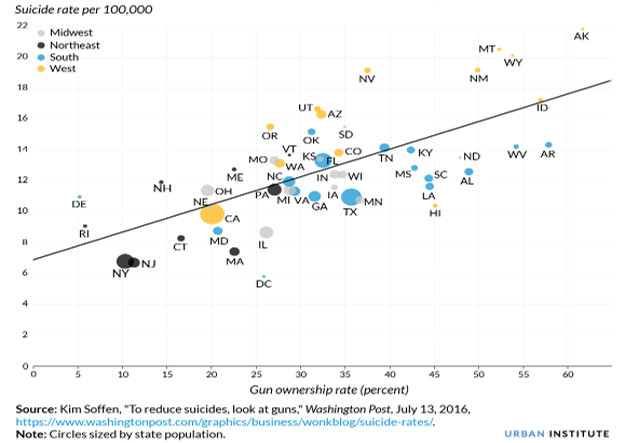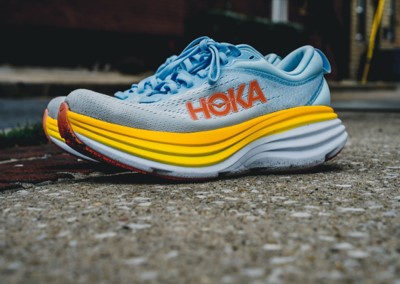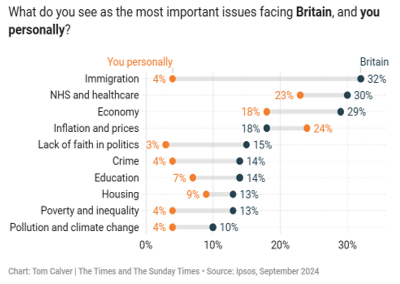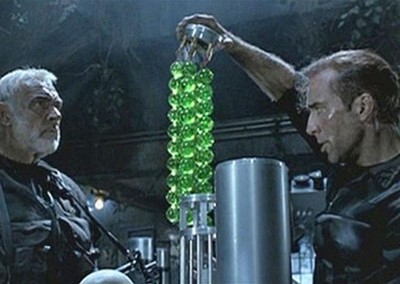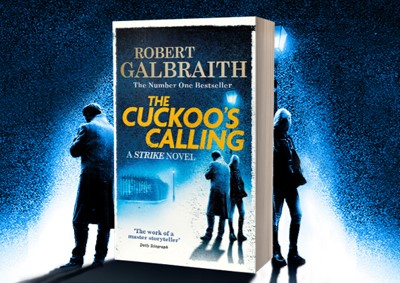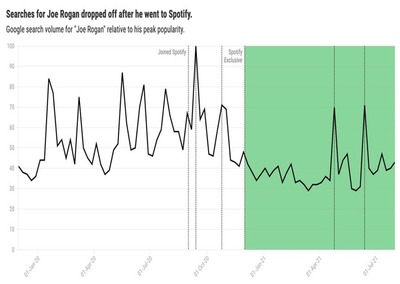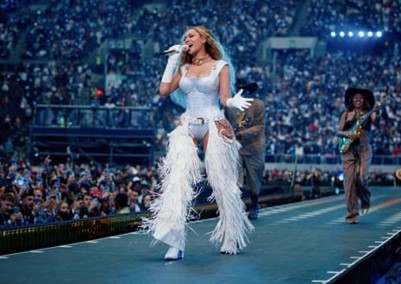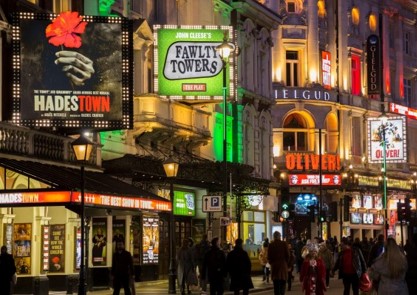How do you prove that these regimes are inflating their GDP figures? Use satellite data. By tracking changes in nighttime lighting – a measure of consumption and activity that is hard to fake – researchers found a clear link between lack of freedom and inflated figures.
Sam Salama
If you think kebabs are for nights out, then think again: only 4% of GDK’s business is done post 11pm – this has been helped by a diversified product range, including healthier options like rice bowls, and an ad campaign designed to showcase its relevance at every meal time.
If you look at an election results map of Germany (in 2025), you can still see the iron curtain that divided communist East Germany from the west. The populist AFD party is dominant in the east, where living standards remain low after decades of communist rule, while it fails to cut through in the more prosperous west.
The beauty brand was hailed as a poster child for the DTC model. But now, as Shane O Leary notes, “it has 11 stores and a Sephora partnership is key to recent growth.” Like many brands it is realising that physical stores play a crucial role in brand growth.
In university exams, graders tend to get progressively harsher, which is bad news for surnames later in the alphabet: those starting with U to Z are docked a little more than half a point on a 100-point scale compared with A-to-E surnames. A small difference on one occasion, but over time it can have a big impact.
As bleak as it sounds, suicide is a question of ease and not just motivation. In the US, suicide rates are highest in the states where gun ownership is highest (and largely where gun control laws are weakest).
The billion dollar shoe brand actively limits its distribution to maintain a sense of scarcity and value. Until recently the shoes were available in less than 20% of Dick’s sporting good stores – and company executives sound proud of how few places you can find a pair of Hokas.
Immigration is the biggest perceived problem facing Britain, but just 4% of people feel it affects them personally. It begs the question, why do people assume it’s such a big issue for others? Interestingly, this pattern holds for all surveyed issues with the exception of inflation – which is considered to be a bigger problem personally vs for the country.
In 2002, MI6 revealed new intel that Iraq was stepping up its production of nerve agents – supposedly being loaded into hollow glass spheres. In reality, it was fake intel that was based entirely on the plot of the movie The Rock, starring Sean Connery and Nicholas Cage (glass containers are not in fact used in chemical munitions). This fictional information was being used by the UK government right until the day of the invasion in 2003.
The British public recently heard the voice behind the seemingly inescapable ads. Zoe Lister jokes that cabin crew members must be “absolutely sick” of hearing her, and I’m sure many consumers would agree, but Jet2holidays now has the highest ad awareness of any airline in the UK – despite being much smaller than the market leaders.
The Cuckoo’s Calling, written by Robert Galbraith, sold 1,500 copies when it was first released in 2013. But when it was revealed that Galbraith was the pseudonym used by JK Rowling, the book raced to the top of sales charts before declared as temporarily out of stock. The book hadn’t changed, but the brand behind it had.
Beware restrictions on distribution. Joe Rogan’s exclusive deal with Spotify caused a decline in search volumes and – as the linked article notes – fewer followers for guests who appeared on the podcast. Reach still matters, even for someone as famous as Joe Rogan.
Blackjack and poker might be the quintessential casino games, but they don’t drive the bottom line. 70% of Las Vegas gambling revenue is from slot machines, which brought in $10.5B last year (for comparison, the entire US box office in 2024 was $8.5B).
After disappearing during Covid, live music is back and bigger than ever. In 2024, spend (in the UK) was up 35% on pre-pandemic 2019 – largely driven by big tours like Beyoncé’s Cowboy Carter.
Covid couldn’t alter our appetite for the theatre. Attendance (in London) reached 17.1mn in 2024 – nearly 11 per cent above pre-pandemic levels.

